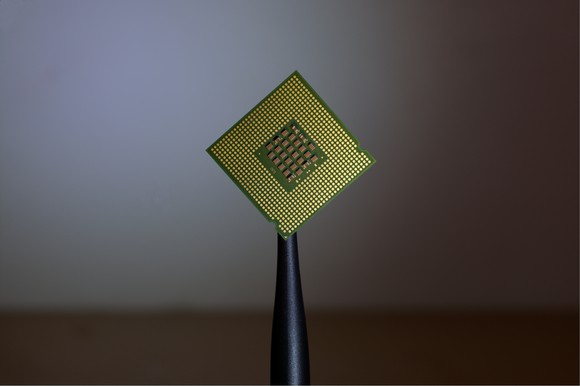Sierra Wireless, Inc. (TSX:SW)(NASDAQ:SWIR) is one of a handful of tech companies that are often mentioned as posing significant opportunities for long-term growth. The company is a manufacturer of the embedded modules and modems that are necessary for devices to connect to the internet and to each other, which is commonly referred to as the Internet of Things, or IoT.
The possibilities for IoT advancement are nearly endless, and we are increasingly seeing those applications in our everyday lives, with everything from refrigerators to footballs now becoming “smart.”
IoT is more than a catchphrase. IoT is an emerging technology that is bringing about a massive change in everyday devices and ushering in a wave of new technology that will bring with it autonomous driving and advancements in artificial intelligence, or AI.
Collectively, the IoT market is estimated to be worth over US$17 billion within the next five years, growing annually by 15%. With billions of devices powering that technology, being a manufacturer of modems necessary to connect those devices to the internet could prove to be an incredibly lucrative opportunity.
Despite that promise, Sierra has so far failed to deliver on the expectations of shareholders, perennially coming short during earnings season. Previous shortcomings by the company were largely attributed to the company’s IoT pure-play transition, and, more recently, a shortage of reliable components from suppliers that required extensive testing. Sierra has noted that the impact of that delay could weigh on results for the second quarter by up to US$0.03 per share.
Q1 2018 results
Sierra reported results for the first fiscal quarter of 2018 last week, which continued to showcase strong growth across the enterprise and IoT segments of the company.
Revenue for the quarter came in at US$186.9 million, handily beating the US$161.2 million reported in the same quarter last year by 15.9%.
On a segment basis, revenue from the OEM Solutions segment came in at US$135.2 million, representing a 2.1% increase over the same quarter last year. The Enterprise Solutions segment realized $29.2 million in the first quarter, reflecting an increase of 34.5% over last year. The IoT Services segment contributed US$22.5 million in the first quarter, representing an increase of 217.6% over the US$7.1 million reported in the same quarter last year.
On a GAAP basis, Sierra finished the quarter with a US$8.4 million, or US$0.23 per share, loss. By way of comparison, in the same quarter last year Sierra posted a smaller US$92,000 loss.
Looking forward to the second quarter, Sierra is calling for stronger revenue numbers in the region of US$195-203 million, with earnings on an adjusted per-share basis coming in between US$0.17 and US$0.25.
Is Sierra a good investment or not?
IoT devices are going to continue growing and becoming more integrated into our daily lives. That change isn’t going to happen overnight, but it is happening at an increasingly frequent rate, and Sierra is a market leader in delivering the modems necessary for those devices to connect.
The company has already shopped well over 120 million M2M (machine-to-machine) devices to over 130 countries, running on over 80 networks, and it continues to work with carriers on 5G connectivity options.
Perhaps one of the biggest areas of growth is in the automotive segment. Over the past two years, Sierra has worked with and secured contracts with major automotive manufacturers to provide connectivity options for new model vehicles. Last year’s deal with Volkswagen is a perfect example of this, but the revenues stemming from that deal will not fully be realized until next year.
Year to date, Sierra’s stock has dropped over 10%, and over the past calendar year, that drop accelerates to 40%. Despite that drop, Sierra’s long-term prospects remain as strong as ever, and long-term investors should take advantage of the recent dip to acquire more of what is one of the best tech-stocks on the market.








